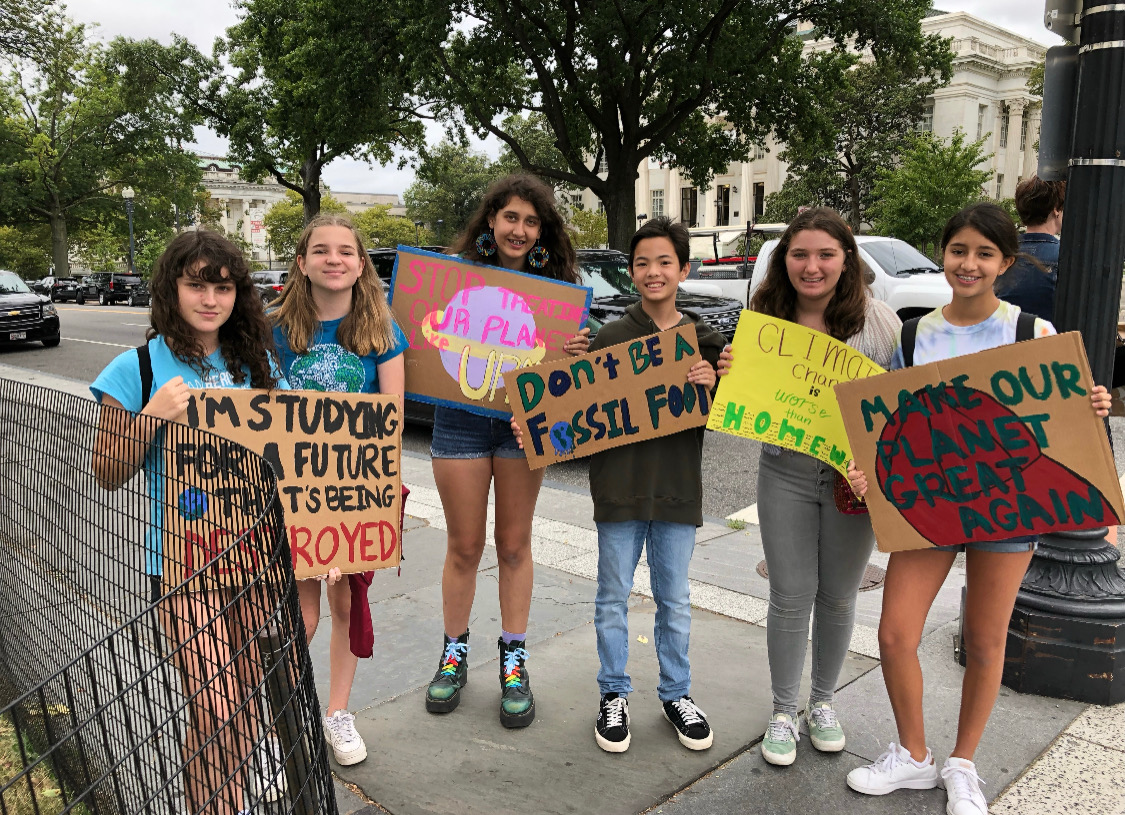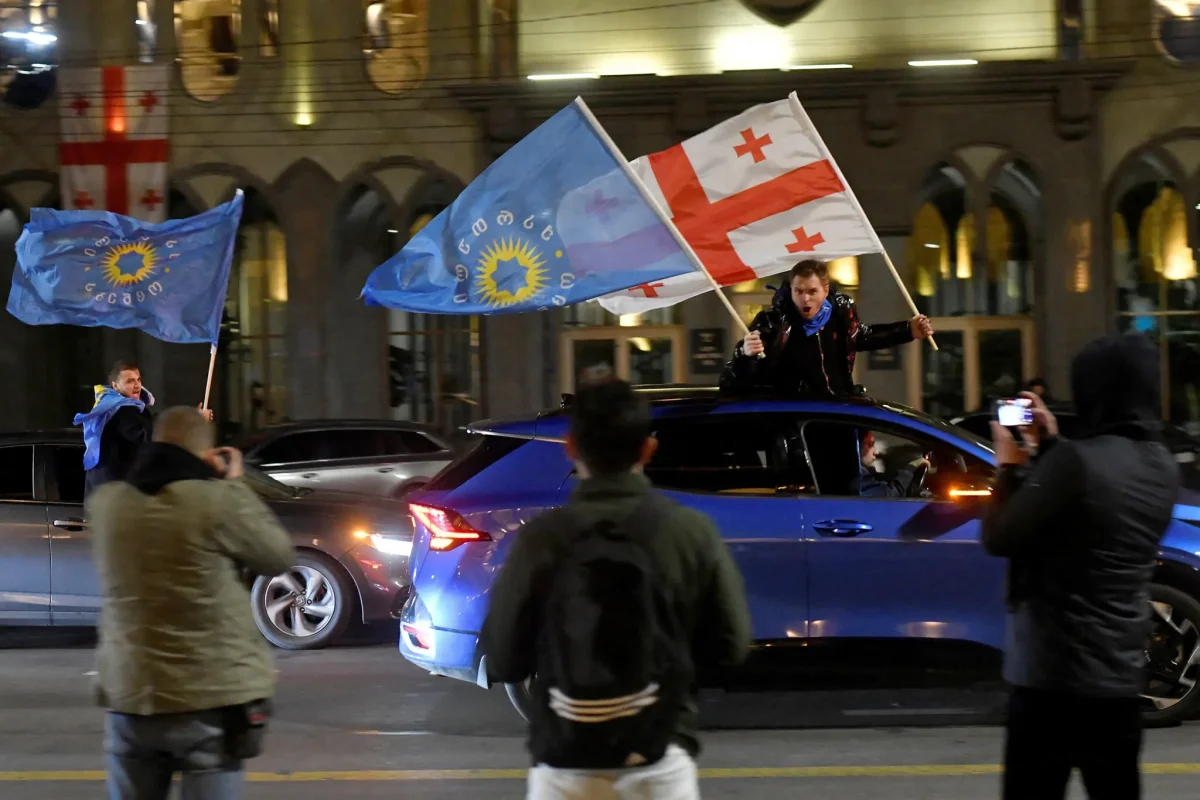Teen activism for action on climate change has grown in recent years, according to the UN. Across the world, students have protested for and demanded concrete solutions to the impending climate crisis. Fueled by disappointment at politicians and world leaders, young people have taken it upon themselves to address the crisis on their own.
Student action was especially prevalent in 2019 when an estimated 1.6 million young people in 125 countries missed school for climate change protests, according to [source you have earlier in sentence]. Climate activist Greta Thunberg was a catalyst in these global climate strikes when she began skipping school in 2018 at just 15 years old to protest in front of federal buildings in Stockholm, according to the Thomson Reuters Foundation.
WIS students and faculty alike have their own thoughts on the state of the climate crisis and what measures need to be taken.
Junior Sophia Al-Samarrai attended a climate strike in D.C. in September of 2019 because of her passion for climate justice. She believes that protesting is a very effective method of combating climate change, as she does not see the actions of everyday people as the cause.
“The bigger pollutants and issues in the world are these big companies,” Al-Samarrai said. “This is affecting people who are not in places of power. So a lot of that is the indigenous people here in the US, and just black and brown people everywhere.”
Environmental Systems and Societies teacher Trish Beck describes her shock after attending her first climate protest in D.C. and seeing very few young people. “It’s their future, why aren’t they enraged by this?” she asked.
She adds that this played a role in her excitement when more young people became involved in climate justice later on. She stresses the importance of having young leaders like Thunberg to inspire young people. “That’s what I think the youth needed, a younger voice leading the people instead of having older people all the time saying, ‘you should care about this,’” Beck said
The United Nations Climate Change Conference ‘COP26’ took place this year in Glasgow, Scotland, from Oct. 31 to Nov. 12. During the 26th annual conference, world leaders and scientists alike came together to discuss the ongoing climate crisis.
The summit received significant criticism from climate activists, as many believe concrete measures are not being taken to address the crisis. Among the critics were teens who felt that this crisis was another example of performativity by world leaders.
Beck believes that climate conventions are important because they raise awareness about problems, but they lack concrete measures to address those problems. “It’s promises that they make,” she said. “There’s no accountability being held to those things that they said they were going to do.”
Junior Bianca Pattison feels that many climate issues could be resolved if federal governments worldwide put more restrictions on corporations, given that 71% of all emissions in the world are produced by only 100 companies, according to the Guardian. “There could be so many international guidelines set by world leaders at conventions like COP26,” Pattison said.
Sophomore Klara Young sees the ignorance and selfishness of world leaders and people in general as a major factor in the worsening climate.
“[People] think ‘someone else will deal with that,’ ‘I can’t really do anything,’ ‘the government will deal with that,’ ‘it’s not my issue,’” Young said. “That’s part of what’s making it so bad, the fact that people just are not taking responsibility for anything, or trying to help with anything.”
Furthermore, the phenomenon of “climate anxiety” has grown among young people as the crisis has worsened, according to the American Psychological Association who defines it as “a chronic fear of environmental doom.”
Freshman Clara Racine says that she and her friends experience climate anxiety on a regular basis.“There’s this assumption in terms of my parents, and just older generations in general, that our generation is just going to fix everything” she said. “It’s always in the back of your mind [that] if I don’t take enough action then we’re going to end up without a planet.”
Al-Samarrai describes how her climate anxiety has grown as more climate disasters have taken place recently. “I think it’s really scary when you hear about these major events like all of the flooding recently in New York,” she said.
Parents are also experiencing climate anxiety as they worry about their children’s future. “I have two little boys,” Beck said. “So I think about what they’re gonna inherit.”
Upper school Geography teacher Sushmita Vargo emphasizes that not all hope is lost and measures are being taken to address the crisis. However, she adds that the rate at which they’re being taken may not be fast enough to make a large enough difference. “We are doing things and the temperatures are changing,” she said. “However, are we doing things fast enough to be able to cope?”
Al-Samarrai adds that things can be done on an individual level to help with the crisis such as making lifestyle changes to reduce waste.
“One person not using their car isn’t going to change the world,” she said. “But if you have many people thinking like that, then that could make a big difference.”
Young emphasizes that cutting down on meat consumption is one of the most beneficial ways to help the environment. Meat has proven to be harmful for the environment because of the large amounts of land, energy and water use that meat production requires.
“If everyone at the school had two days where they did not eat meat that would make such a difference,” she said. “And that’s just in our small school.”
Racine stresses that youth participation in climate justice is critical. “I think the more we learn, the earlier we learn, the easier it will be for us to take action,” she said.
By Eliana Aemro Selassie

































































